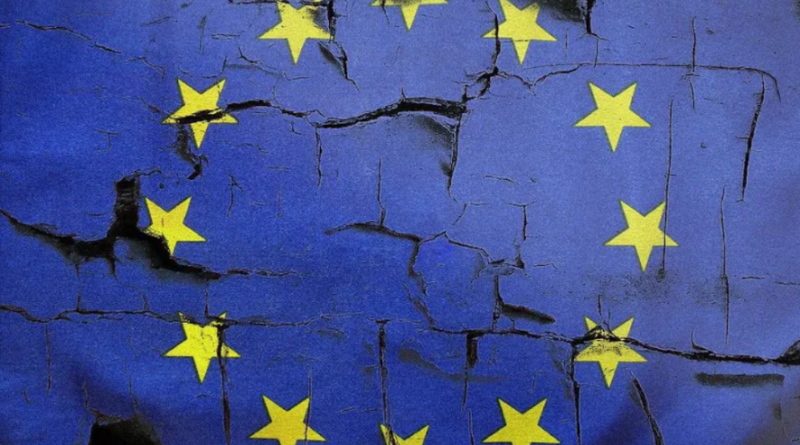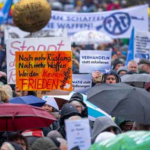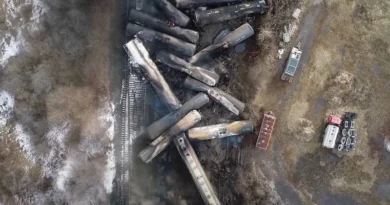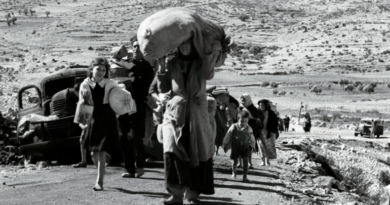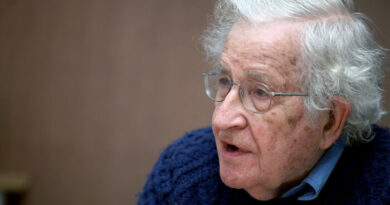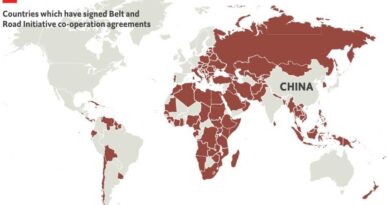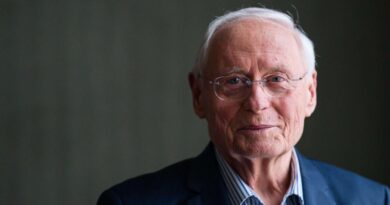Can Europe survive this moment?
BOAVENTURA DE SOUSA SANTOS
A new-old ghost hangs over Europe: war. The most violent continent in the world in terms of the number of deaths caused by wars during the last 100 years (not to go any further and include the deaths suffered by Europe during religious wars and the deaths inflicted by Europeans on peoples subjected to colonialism) is headed for a new war.
Nearly 80 years after World War II, the most violent conflict to date, which killed among 70 and 85 million people, the coming war may be even more deadly. All previous conflicts began apparently without a compelling reason and were supposed to last for a short time. At the beginning of these conflicts, the majority of the well-to-do population continued with their normal lives: shopping and going to the theater, reading newspapers, taking vacations and enjoying idle talk about politics.
Whenever a localized violent conflict arose, the belief prevailed that it would be resolved locally. For example, very few people (including politicians) thought that the Spanish Civil War (1936-1939), which caused the death of More than 500.000 people, it would be the harbinger of a larger war, the Second World War, despite the fact that conditions on the ground indicated so. Even knowing that history does not repeat itself, it is legitimate to wonder if the current war between Russia and Ukraine is not the harbinger of a new, much broader war.
Signs are accumulating that a greater danger may be on the horizon. At the level of public opinion and the dominant political discourse, the presence of this danger is manifested in two contrasting symptoms. On the one hand, conservative political forces not only control ideological initiatives, but also enjoy a privileged reception in the media. They are polarizing enemies of complexity and calm argumentation, using extremely aggressive words and making inflammatory appeals to hatred.
These conservative political forces are not bothered by the double standards with which they comment on conflicts and death (for example, the difference between deaths resulting from the conflicts in Ukraine and Palestine), nor by the hypocrisy of appealing to values that they deny with their practices (they expose their opponents' corruption to hide their own).
In this current of conservative opinion, more and more right-wing and extreme-right positions are intermingled, and the greatest dynamism (tolerated aggressiveness) comes from the latter. This device is intended to instill the idea of the need to eliminate the enemy. Elimination by words leads to a bias in public opinion towards elimination by deeds.
While in a democracy there are no internal enemies, only adversaries, the logic of war is insidiously transposed to assume the presence of internal enemies, whose voices must first be silenced. In parliaments, the conservative forces dominate the political initiative; while the forces of the left, disoriented or lost in ideological labyrinths or incomprehensible electoral calculations, return to a defense that is as paralyzing as it is incomprehensible. As in the 1930s, the apology for fascism is made in the name of democracy; the apology of war is made in the name of peace.
But this political-ideological climate is marked by an opposite symptom. The most attentive observers or commentators are aware of the ghost that haunts Europe and have surprisingly come together expressing their concerns about it. In recent times, I have identified with analyzes from commentators who I have always recognized as belonging to a different political family than myself: conservative, moderate-right commentators. What we have in common is the distinction we make between the issues of war and peace and the issues of democracy. We can diverge on the first and converge on the second. We all agree that only the strengthening of democracy in Europe can lead to the containment of the conflict between Russia and Ukraine and, ideally, lead to its peaceful solution. Without a vigorous democracy, Europe will continue to sleepwalk towards a new war and towards its own destruction.
Is there time to avoid catastrophe? I'd like to say yes, but I can't. The signs are very worrying. First, the far right is growing globally, fueled and funded by the same stakeholders who are meeting in Davos to go about their business. In the 1930s, they were much more afraid of communism than fascism, today, without the communist threat, they are afraid of the revolt of the impoverished masses and propose violent police and military repression as the only response. His parliamentary voice is that of the extreme right. Internal war and external war are two sides of the same monster, and the arms industry gains equally from both wars.
Second, the war in Ukraine seems more confined than it really is. The current scourge, which ravages the continent, where so many thousands of innocents (mostly Jews) died 80 years ago, is very similar to self-flagellation. Russia to the Urals is as European as the Ukraine, and with this illegal war, in addition to the loss of innocent lives, many of whom will be Russian speakers, Russia is destroying the infrastructure that it built itself under the former Soviet Union.
The history and ethno-cultural identities between Russia and Ukraine are much more intertwined than with other countries that once occupied Ukraine and now support it. Both Ukraine and Russia must ensure greater emphasis on their democratic processes to end the war and ensure peace.
Europe is much bigger than the eyes of Brussels can reach. At the headquarters of the European Commission (or NATO headquarters, which is the same thing) the logic of peace dominates according to the Treaty of Versailles of 1919, and not that established under the Congress of Vienna of 1815. The first humiliated the defeated power (Germany) after World War I and humiliation led to a new war 20 years later; the second honored the defeated power (Napoleonic France) and guaranteed a century of peace in Europe.
The peace proposed today is that of the Treaty of Versailles. It presupposes the total defeat of Russia, as envisioned by Adolf Hitler when he invaded the Soviet Union in 1941. Even assuming this occurs at the level of conventional warfare, it is easy to predict that if the losing power has nuclear weapons, it will not hesitate to use them. There will be a nuclear holocaust. American neoconservatives already include this eventuality in their calculations, convinced in their blindness that everything will happen thousands of kilometers from their borders. America first… and last. It is very possible that they are already thinking about a new Marshall Plan, this time to store the atomic waste accumulated in the ruins of Europe.
Without Russia, Europe is half of itself, economically and culturally. The biggest illusion instilled in Europeans by the information warfare over the last year is that Europe, once severed from Russia, will be able to regain its integrity with the help of the United States, which looks after its interests very well. History shows that a declining empire always tries to drag its influence zones to stop its decline. I wish Europe knew how to take care of its own interests.

